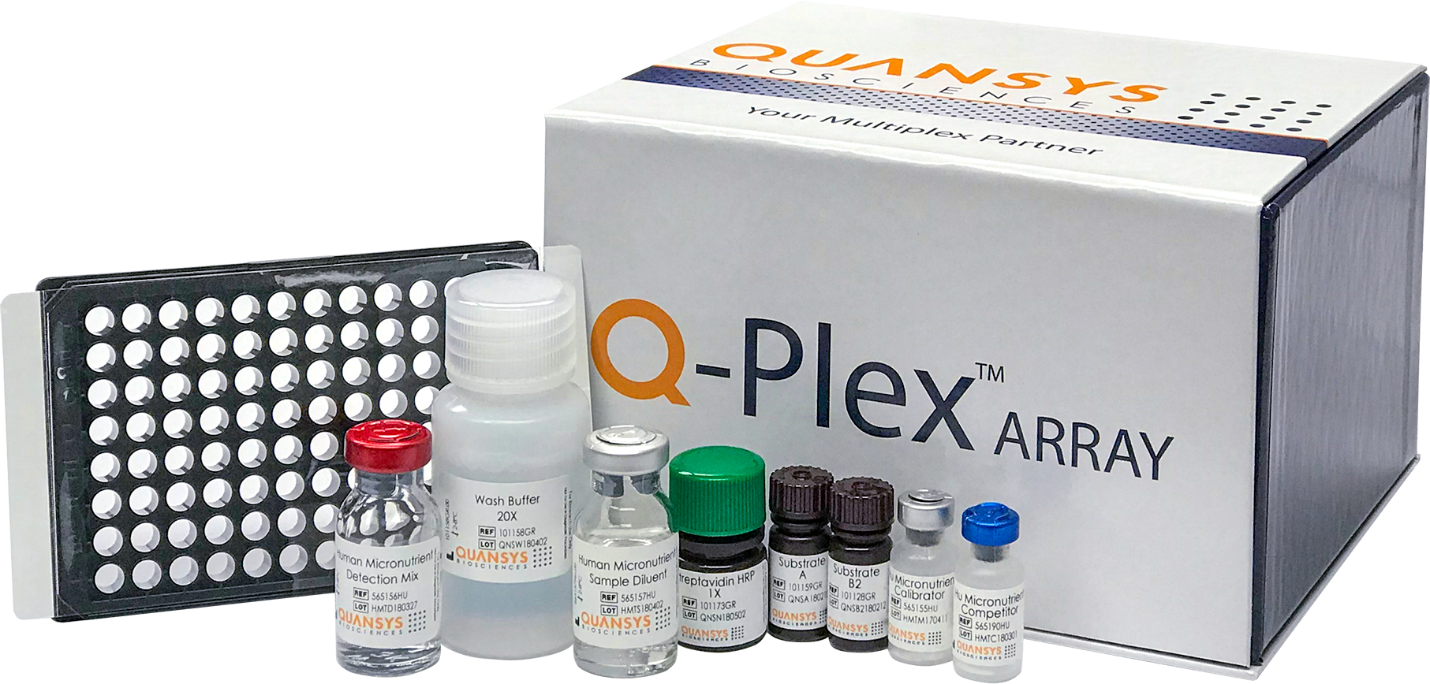More than 2 billion people are affected by micronutrient deficiencies, especially in low- and middle-income countries. These conditions contribute to impaired development, disease, and death, with the burden falling especially hard on young children and expectant mothers.
Micronutrient deficiencies can be addressed through nutrition programs, but it can be difficult and expensive to conduct wide-scale population surveillance needed to inform these interventions. Existing tests for micronutrient deficiencies require collecting multiple samples from an individual and testing each with several diagnostic tools—multiplied across a population. Often, in low-resource and remote settings, these samples also need to be shipped internationally under continuous cold chain for further analyses, a costly and time-consuming prospect.

The Q-Plex™ Human Micronutrient Array. Photo: Quansys Biosciences, Inc.
The solution is the Q-Plex™ Human Micronutrient Array (7-plex). PATH and our partners, Quansys Biosciences, Inc., and the University of Washington, developed and brought to market this new assessment tool to create an affordable option for population surveillance.
The Q-Plex micronutrient array simultaneously quantifies vitamin A, iron, and iodine deficiency biomarkers, as well as inflammation and Plasmodium falciparum malaria, using just a single sample. This multiplexing technology enables researchers to obtain more information in less time and at lower cost. The robust nature and simplicity of the Q-Plex technology allows for testing of samples near the communities where they are collected. The micronutrient array costs significantly less than current commercial enzyme-linked immunosorbent assay–based methodologies, while offering all the advantages of multiplexing.
How to order
PATH has licensed to Quansys the rights to manufacture and sell the Q-Plex™ Human Micronutrient Array (7-plex) at a preferential price of US$400 per test kit ($1.43 per analyte) to nongovernmental organizations, low- and middle-income country nutrition programs, and research organizations conducting research in low- and middle-income countries.
Visit QuansysBio.com for more information or contact Meghan Young (myoung@quansysbio.com).
The future of multiplexed tools
PATH is expanding Q-Plex array development to include surveillance panels for other conditions commonly found in low- and middle-income countries, including environmental enteric dysfunction, asymptomatic malarial infections, vaccine seroconversion, and disease-related test panels. These new multiplexed arrays create the opportunity to combine micronutrient surveillance with disease programs, saving health programs, governments, and researchers the additional cost and time to conduct parallel surveillance activities.
Furthermore, linking multiplexed immunodiagnostics, stable sample types such as dried blood spots, and digital health innovations such as anonymous patient linkage to barcoded samples can transform the way nutrition and disease surveillance is performed. Combining these solutions can enable targeted public health campaigns directed by accurate population surveillance data alongside improved patient follow-up and care informed by screening.
Additional information
- Read our scientific publications.
- To learn more about PATH’s work in multiplexed diagnostic and assessment tools, contact David Boyle, project leader | dxinfo@path.org.
Acknowledgement
This project is supported by the Bill & Melinda Gates Foundation.

PATH/Evelyn Hockstein



